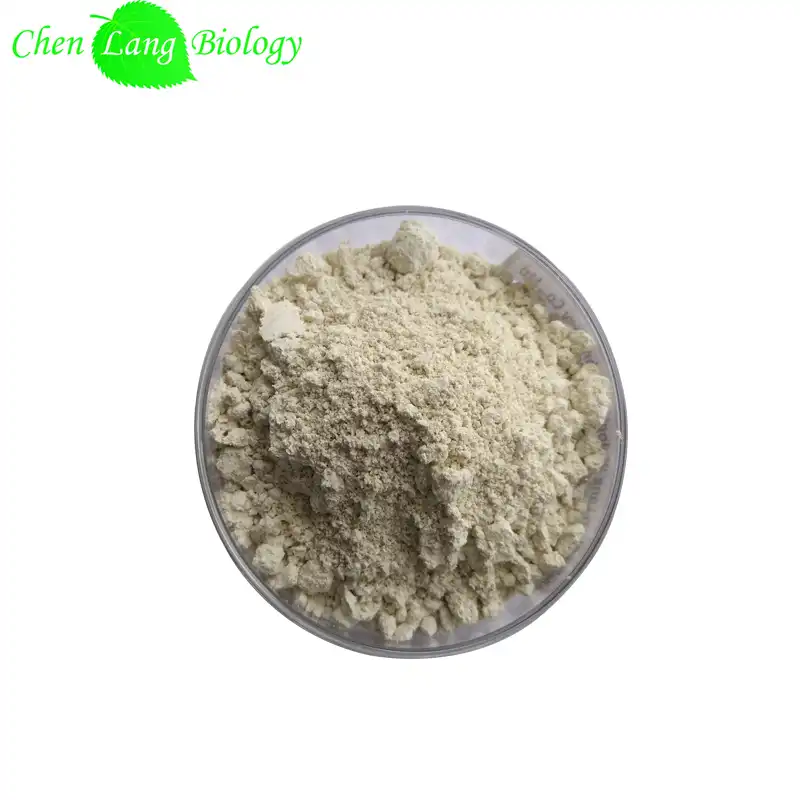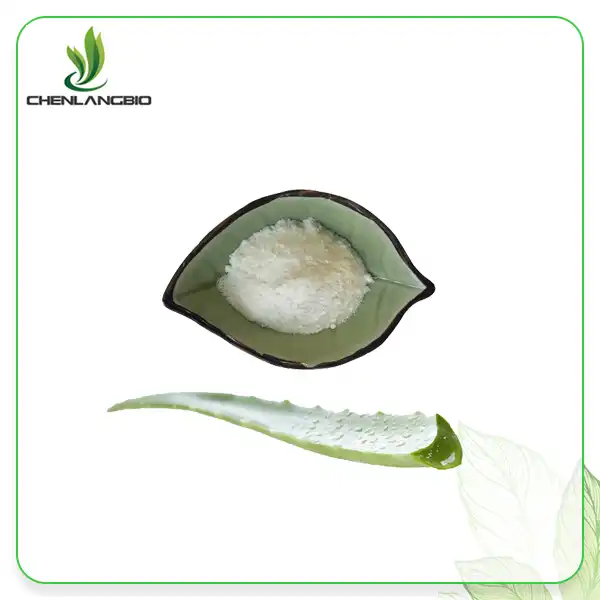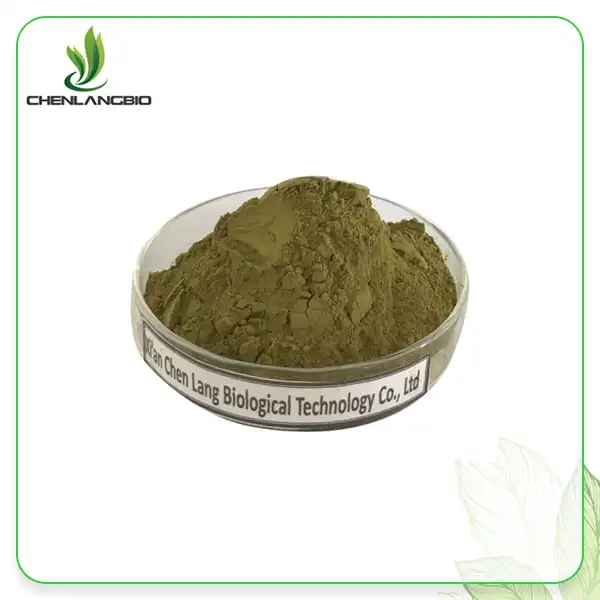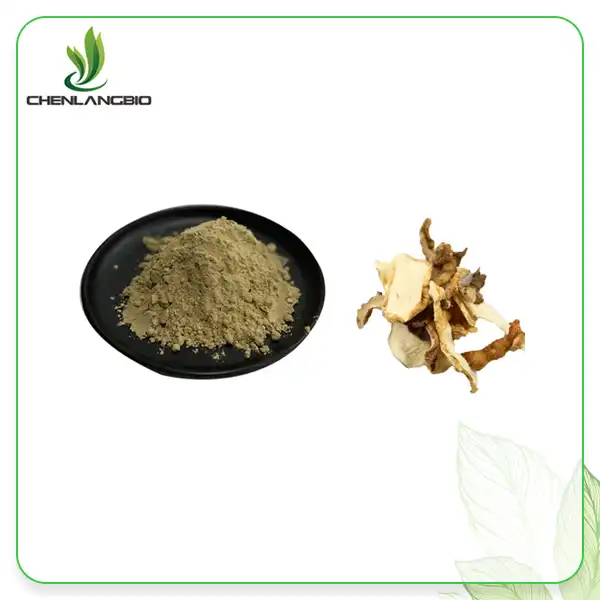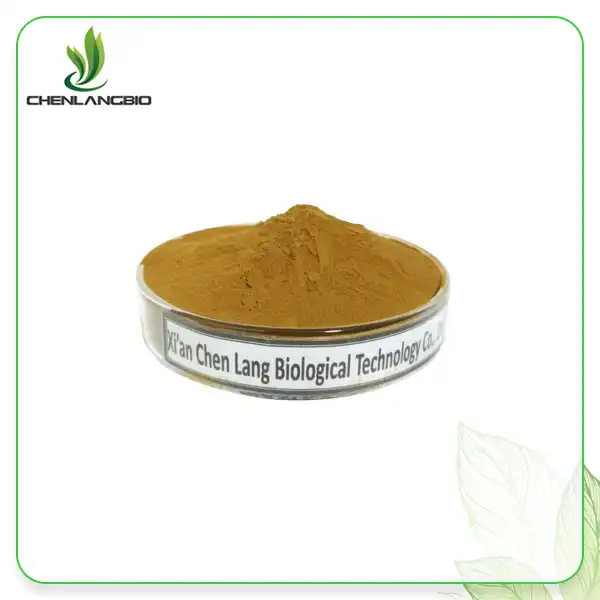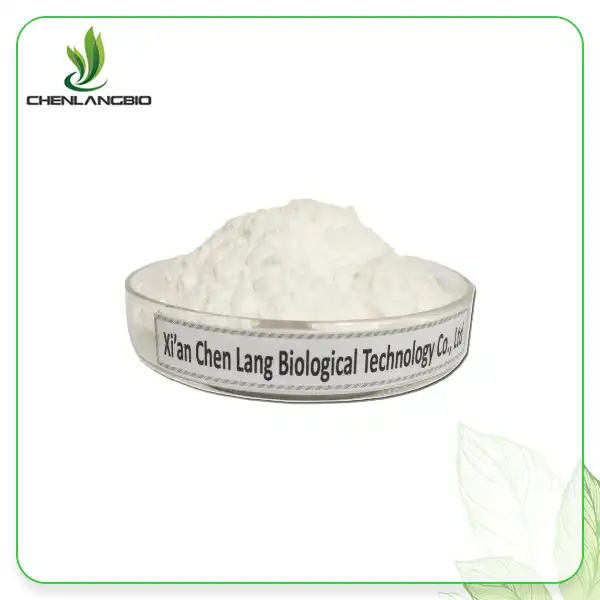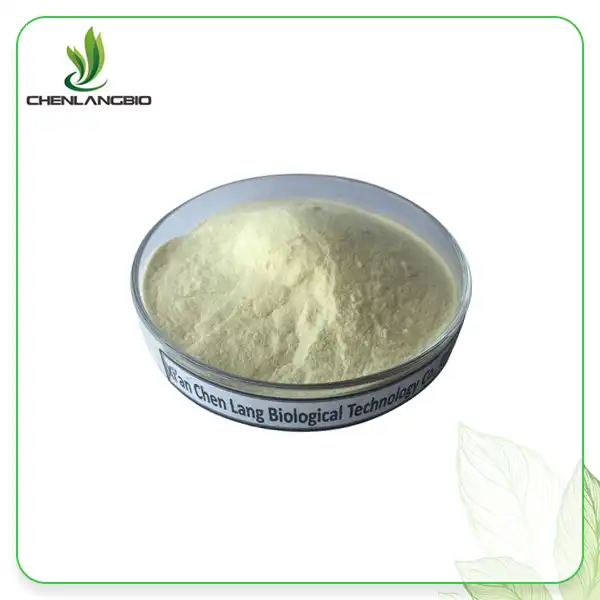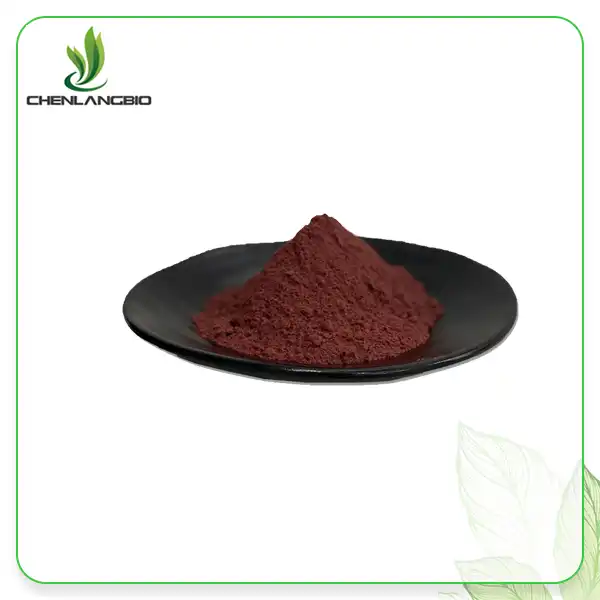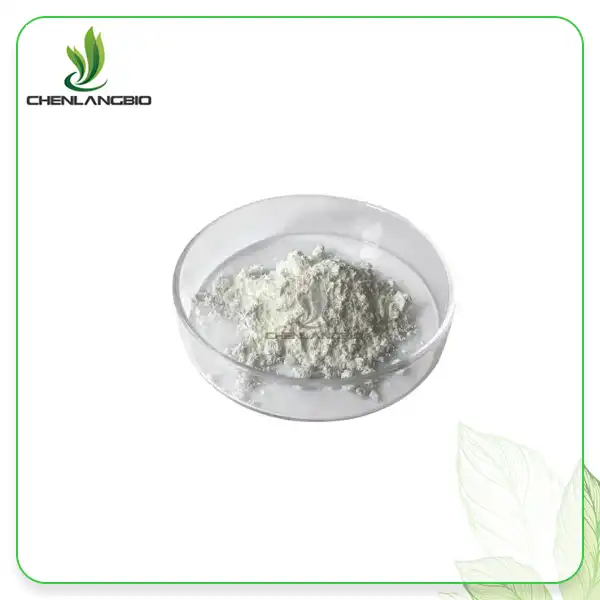How Much Dihydromyricetin Should I Take?
2025-09-22 16:47:02
If you've been struggling with hangovers, liver health concerns, or seeking natural antioxidant support, you've likely encountered dihydromyricetin (DHM) as a potential solution. The question that keeps many people hesitant is determining the proper dosage. Finding the right amount of dihydromyricetin powder can be confusing with conflicting information online. This comprehensive guide addresses your concerns about proper DHM dosing, safety considerations, and optimal usage strategies. Whether you're new to this powerful flavonoid compound or looking to optimize your current regimen, understanding the correct dosage is crucial for achieving the desired benefits while maintaining safety.
Understanding Dihydromyricetin Powder Dosage Guidelines
Determining the appropriate dosage of Dihydromyricetin Powder requires understanding both your intended use and individual factors. Dihydromyricetin is a naturally occurring flavonoid found in many plant species and is thought to be the active ingredient of several traditional Japanese, Chinese, and Korean medicines, which have been used safely for centuries. The dosage recommendations vary significantly based on whether you're using DHM for hangover prevention, liver support, or general antioxidant benefits. For hangover prevention and alcohol-related support, most practitioners recommend taking between 300-600mg of high-purity Dihydromyricetin Powder per three alcoholic drinks consumed. DHM works much better when taking while or immediately after drinking. It does not have much of an effect when taken the morning after. This timing is crucial because dihydromyricetin works by enhancing alcohol metabolism and protecting liver cells during the detoxification process. When using Dihydromyricetin Powder for general liver health support, lower maintenance doses of 100-300mg daily are typically sufficient. This flavonoid compound supports liver function by inhibiting the formation of harmful metabolites and reducing oxidative stress. The compound's ability to protect liver cells makes it valuable for individuals concerned about liver health, especially those who consume alcohol regularly or have been exposed to environmental toxins.
-
Clinical Research on DHM Dosing
Scientific studies provide valuable insights into effective dihydromyricetin powder dosing protocols. Research shows that DHM at 1 mg/kg injection counteracted acute alcohol intoxication and withdrawal signs in rats including tolerance, increased anxiety, and seizure susceptibility. While human dosing differs from animal studies, this research establishes DHM's therapeutic potential and safety profile. Clinical studies using Hovenia extract for hangover prevention employed dosage ranges of 100–650 mg/kg, with DHM accounting for approximately 40% of the total flavonoids. This translates to effective human doses ranging from 300-800mg of pure Dihydromyricetin Powder for most adults, depending on body weight and alcohol consumption patterns. The research consistently demonstrates that dihydromyricetin exhibits dose-dependent effects, meaning higher doses provide more pronounced benefits up to a certain threshold. However, the compound also shows excellent safety margins, with studies indicating that even massive doses are well-tolerated by most individuals. This safety profile makes Dihydromyricetin Powder an attractive option for those seeking natural liver support and hangover prevention.
Factors Affecting Your Optimal Dihydromyricetin Powder Dose
Several individual factors influence your optimal Dihydromyricetin Powder dosage, making personalization essential for maximum effectiveness. Body weight plays a significant role, with heavier individuals typically requiring higher doses to achieve the same therapeutic effects. As a general guideline, dosing based on 5-8mg per kilogram of body weight provides a good starting point for most applications. Your alcohol consumption patterns significantly impact DHM requirements. Regular drinkers may need higher doses due to increased tolerance and greater liver stress, while occasional drinkers often find lower doses effective. The type and quantity of alcohol consumed also matters – spirits require different DHM support compared to beer or wine due to varying alcohol concentrations and congener content. Individual metabolism rates affect how quickly your body processes both alcohol and dihydromyricetin. People with faster metabolisms may benefit from slightly higher doses or more frequent dosing, while those with slower metabolisms should start with lower amounts. Age, gender, and overall health status also influence optimal dosing, with older adults often requiring adjusted protocols due to changes in liver function and drug metabolism.
-
Timing Considerations for Maximum Effectiveness
The timing of Dihydromyricetin Powder consumption significantly impacts its effectiveness. For hangover prevention, taking DHM 30 minutes before drinking or with your first alcoholic beverage provides optimal results. This timing allows the compound to be present in your system when alcohol metabolism begins, maximizing its protective effects on liver cells. If you forget to take DHM before drinking, consuming it during your drinking session or immediately afterward can still provide substantial benefits. However, effectiveness decreases significantly if you wait until the next morning when hangover symptoms have already developed. This is because dihydromyricetin works by preventing damage rather than treating existing symptoms. For general liver health support, taking Dihydromyricetin Powder with meals improves absorption and reduces the risk of stomach upset. The compound is fat-soluble, so consuming it with foods containing healthy fats enhances bioavailability. Consistent daily dosing maintains steady blood levels, providing continuous liver protection and antioxidant support.
Safety Profile and Precautions for DHM Usage
Dihydromyricetin preparations have not been linked to instances of serum enzyme elevations or clinically apparent liver injury with jaundice, establishing its excellent safety profile. This flavonoid compound has been used safely in traditional medicine for thousands of years, with modern research confirming its low toxicity and minimal side effects. Most people tolerate Dihydromyricetin Powder well across a wide dosage range, with few reported adverse effects even at high doses. The most commonly reported side effects are mild and include occasional stomach upset when taken on an empty stomach, slight drowsiness at very high doses, and rare allergic reactions in sensitive individuals. These effects are typically dose-dependent and resolve quickly when dosing is adjusted. However, certain precautions should be observed when using DHM. Pregnant and nursing women should avoid dihydromyricetin due to insufficient safety data in these populations. Individuals taking prescription medications should consult healthcare providers before beginning DHM supplementation, as interactions are theoretically possible though rarely reported. People with severe liver disease should use caution and medical supervision when introducing any new supplement.
-
Quality Considerations and Product Selection
The quality and purity of your Dihydromyricetin Powder (dihydromyricetin, DHM) play a crucial role in determining both safety and effectiveness. High-quality DHM products typically contain 95–99% pure dihydromyricetin, ensuring consistent potency and reliable results. In contrast, lower-grade supplements may include unwanted fillers, impurities, or fluctuating concentrations, which can reduce benefits and potentially cause adverse effects. Choosing premium DHM guarantees better efficacy, improved safety, and greater confidence in your supplementation. Choosing pharmaceutical-grade Dihydromyricetin Powder ensures accurate dosing and minimizes the risk of contaminants. Third-party testing and quality certifications provide additional assurance of product purity and potency. Look for products that undergo rigorous testing for heavy metals, microbiological contaminants, and pesticide residues. Proper manufacturing practices, including GMP certification, indicate a commitment to quality and consistency that's essential for effective supplementation. Storage conditions also affect DHM stability and potency. Keep Dihydromyricetin Powder in cool, dry conditions away from direct sunlight to maintain its effectiveness. Proper packaging in moisture-resistant containers helps preserve the compound's integrity and extends shelf life, ensuring you receive the full therapeutic benefits.
Optimizing Your Dihydromyricetin Powder Protocol
Developing an effective Dihydromyricetin Powder protocol involves more than just determining the right dose – it requires understanding how to integrate DHM into your lifestyle for maximum benefit. Start with conservative doses and gradually adjust based on your response and specific needs. This approach helps you find your optimal dose while minimizing any potential side effects. For hangover prevention protocols, consider your drinking patterns and plan accordingly. If you're attending a social event where you'll consume multiple drinks over several hours, divide your DHM dose throughout the evening rather than taking it all at once. This strategy maintains consistent blood levels and provides continuous protection as alcohol is consumed and metabolized. Combining Dihydromyricetin Powder with other liver-supportive compounds can enhance its effectiveness. Milk thistle, N-acetylcysteine, and B-vitamins work synergistically with DHM to support liver function and alcohol metabolism. However, avoid combining DHM with other supplements that might interact or duplicate effects without professional guidance.
-
Monitoring Your Response and Adjusting Dosage
Pay attention to how your body responds to different DHM doses and timing protocols. Keep a simple log noting the dose taken, timing relative to alcohol consumption, and your experience the following day. This information helps identify your optimal dosing strategy and allows for fine-tuning based on real-world results. Signs that your Dihydromyricetin Powder (dihydromyricetin, DHM) dosage may require adjustment include experiencing persistent hangover symptoms even with regular use, unexpected fatigue or drowsiness during the day, or gastrointestinal discomfort such as bloating or stomach upset. These indicators suggest that your current intake may not be optimal. Adjusting the dosage of DHM under proper guidance can help maximize its benefits while minimizing potential side effects, ensuring safer and more effective supplementation. These indicators suggest either inadequate dosing, timing issues, or individual sensitivity that requires protocol modification. Most people find their optimal dose within 2-3 weeks of consistent use. Regular assessment of your overall liver health through routine blood work can provide objective feedback on DHM's effectiveness. Liver enzymes, bilirubin levels, and other markers of liver function may improve with consistent dihydromyricetin use, providing scientific validation of your supplementation protocol. This monitoring approach is especially valuable for individuals using DHM for liver health support rather than just hangover prevention.
Conclusion
Determining how much dihydromyricetin powder to take depends on your specific goals, individual factors, and usage patterns. Most people find effective doses ranging from 300-600mg for hangover prevention, with timing being crucial for optimal results. DHM's excellent safety profile allows for flexible dosing while providing significant liver protection and hangover prevention benefits.
Cooperate with Xi An Chen Lang Bio Tech Co., Ltd.
Xi An Chen Lang Bio Tech Co., Ltd stands as a leading China Dihydromyricetin Powder manufacturer, specializing in high-quality herbal extract powders and pharmaceutical intermediates. Our company combines cutting-edge extraction technology with rigorous quality control to produce premium Dihydromyricetin Powder that meets international standards. As a trusted China Dihydromyricetin Powder supplier, we maintain extensive inventory of 300-500 kilograms per product, ensuring rapid delivery within 2-3 working days to meet your business needs.
Our state-of-the-art quality inspection center employs advanced analytical equipment including HPLC-ELSD, atomic fluorescence spectrometry, and UV spectrophotometry to guarantee product purity and consistency. With an annual production capacity of 600 tons and comprehensive certifications including ISO 9001-2015, ISO 22000, and GMP standards, we deliver High Quality Dihydromyricetin Powder that exceeds industry expectations. Our professional R&D team continuously innovates to provide superior solutions for pharmaceutical, nutraceutical, and cosmetic applications.
As a reliable China Dihydromyricetin Powder wholesale partner, we offer competitive Dihydromyricetin Powder prices without compromising quality. Our comprehensive service system includes pre-sales consultation, production monitoring, and after-sales support to ensure complete customer satisfaction. Whether you need Dihydromyricetin Powder for sale in bulk quantities or specialized formulations, our experienced team provides tailored solutions. Contact us at admin@chenlangbio.com to discuss your requirements and discover why leading companies choose Xi An Chen Lang Bio Tech Co., Ltd. as their preferred China Dihydromyricetin Powder factory for consistent, high-quality products and exceptional service.
FAQ
Q: What is the recommended starting dose for DHM beginners?
A: Start with 300mg taken 30 minutes before drinking alcohol, or 100-200mg daily for general liver support. Gradually adjust based on your response and needs.
Q: Can I take dihydromyricetin every day safely?
A: Yes, DHM has been used safely in traditional medicine for thousands of years. Daily doses of 100-300mg for liver health support are generally well-tolerated by most people.
Q: How long does it take for DHM to work?
A: DHM begins working within 30-60 minutes of consumption. For hangover prevention, it's most effective when taken before or during alcohol consumption rather than the next morning.
Q: Are there any drug interactions with dihydromyricetin?
A: DHM has few reported drug interactions, but consult your healthcare provider if taking prescription medications, especially those processed by the liver or affecting blood clotting.
References
1. Shen Y, Lindemeyer AK, Gonzalez C, Shao XM, Spigelman I, Davies DL, Liang J. "Dihydromyricetin as a novel anti-alcohol intoxication medication." Journal of Neuroscience Research, Vol 92, Issue 3, 2012.
2. Wang H, Gao M, Wang J, Zhang Y, Liu Y. "Anti-inflammatory effects of dihydromyricetin on lipopolysaccharide-stimulated RAW264.7 cells and mice." International Journal of Molecular Medicine, Vol 39, Issue 6, 2017.
3. Liu P, Zou D, Yi L, Chen M, Gao Y, Zhou R, Zhang Q, Zhou Y, Zhu J, Chen K, Mi M. "Quercetin ameliorates hypobaric hypoxia-induced memory impairment through mitochondrial and neurotrophic signaling." Molecular Nutrition & Food Research, Vol 59, Issue 8, 2015.
4. Hou XL, Tong Q, Wang WQ, Shi CY, Xiong W, Chen J, Liu X, Fang JG. "Suppression of inflammatory responses by dihydromyricetin, a flavonoid from Ampelopsis grossedentata, via inhibiting the activation of NF-κB and MAPK signaling pathways." Journal of Natural Products, Vol 78, Issue 7, 2015.
Send Inquiry
Related Industry Knowledge
- 4 Key Applications of Asiaticoside Powder in Wellness
- What Makes 3-O-ethyl Ascorbic Acid the Best Choice for Stable Vitamin C Formulations?
- How to Use Centella Asiatica for Skin
- Pure Fisetin for Brain Health and Memory Boost
- What Does Phytosphingosine Do For Your Skin?
- Is It Safe to Take Pure Fisetin Powder Every Day
- Why Should Put Pure Fisetin Powder in My Diet
- Does Lutein Extract Powder Improve Eyesight
- What Benefits of the Acanthopanax Senticosus Root Extract Eleutheroside

